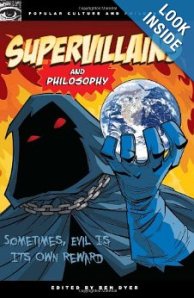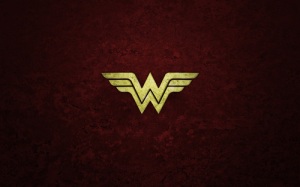Man of Steel has debuted with spectacular results. Good job, Kal’El! I applaud you. Now its time for Diana of Themyscira to take over. It’s time for a Wonder Woman feature film, not a television series. No, not because I want to see one of Hollywood’s leading ladies in that sexy costume. Okay, not just because I want to see one of Hollywood’s leading ladies in that sexy costume (here’s to you Adrianne Palicki). There’s one very big reason as to why this needs to happen. History.
Warrior Princess Diana
For those of you who don’t know much about Wonder Woman, let me give you a brief synopsis before I make my argument. To comic book fans, she is the female equivalent of Superman. She first appeared in All Star Comics #8 in 1941, donning that iconic one-piece, the lasso of truth and those indestructible bracelets. She was born Diana of Themyscira, warrior princess of the Amazons.
There are several origin stories, but the one I like most is the one from Crisis on Infinite Earths, where her mother, wishing for a child, crafts her from clay, and the Greek gods give her “beauty from Aphrodite, strength from Demeter, wisdom from Athena, speed and flight from Hermes, Eyes of the Hunter and unity with beasts from Artemis and sisterhood with fire and the ability to discern the truth from Hestia”. Through a series of conflicts, the Amazons of Themyscira are forced to reveal themselves to the world, and Diana is to be their ambassador, charged with the mission of bringing ‘peace’ to the outside world. I put that word in quotation marks because she does so by kicking ass, and lots of it.
Diana’s adventures in the patriarchal world force her to fight not only for peace, but for gender equality, however she shows a brutality that we rarely see from other superheroes. If law enforcement get in her way, she will hurt them, and not in a ‘collateral damage’ way. She’s not quick to anger, but she’s aware that she has no room to let insults slide in a male dominated society. Last but not least, unlike Superman or Batman, she will kill without thinking twice. Don’t let the suit fool you. To some, she’s already a feminist icon, but why should we make a movie? She’s not nearly as popular as some of the other superheroes, and her cast of villains aren’t very impressive. So why?
The Evolution of Academics
Because eventually educational institutions all over the world will be offering courses called American Mythology. It’s already happening, though the name is different: American Folklore or Intro to Folklore. It’s offered as an elective, and sometimes as a requirement, for Humanities and Anthropology students in Universities all over the world. One need only to refer to the websites and admissions officers of University of Illinois, University of California at Berkley, and Oxford University. It’s a shame my friends over at coursera.org haven’t found one professor in their vast network of 83 institutions to offer the course online, but I digress. What does all this have to do with Diana of Themyscira?
I’d love to bridge that gap for you in an eloquent manor, but I think I’ll leave it to Professor Adele Barker of University of Arizona. She had some very enlightening observations about the evolution of cultural studies in the academic forum Cultural Anthropology: The State of the Field.
I think there has definitely been shift in how we study culture, not only among Russian specialists but among scholars in other fields as well… For years what dominated studies in both the US and Europe was the notion of canon. And that canon was made up of works generally written by white males, with some notable exceptions such as the works of Jane Austin, the Bronte Sisters… Apart from gender, age was definitely a factor in determining the worth of a cultural product. I remember a college professor telling us that it wasn’t clear whether Hemmingway’s works were going to enter the canon because Hemmingway had not been dead long enough to enable critics to make a determination.
Translation: the dead white guys used to take the spotlight. When you signed up for a class on cultural studies, unless it had ‘Modern’ somewhere in the title, you’d be dealing with Shakespeare, Gilgamesh, and Beowolf. But by her estimation, things are changing, and fast…
But the relationship between age and cultural value was not consistent… The boundary between ‘literature’ and ‘folklore’ began to be interrogated. At the same time the idea that material was of interest simply because it was old came into question. The shift from past to present, from older traditional forms to newer ones, was a central part of the cultural studies movement.
Translation: the academics are turning their critical eye to a greater variety of sources. Now she doesn’t go as far as to say the comic books of the modern age should be included in that re-evaluation. Not even close, but if we were to look at comics, and the Amazon heroine in particular, they seem to fall under this wide net she’s casting. The Wonder Woman comic books have been written by both men and women, but the most critically acclaimed point of the heroine’s history was when Gail Simone was at the helm. And having been around for only half a century, Wonder Woman, along with all other comics, can definitely be considered new. In fact, there already exists literature that analyzes the American Superhero with an academic eye. Just type in Supeheroes and Philosophy in Amazon’s search engine. Even the Guardian (yes, that Guardian) has an article for teachers about teaching various subjects through superheroes and comic books.
This is my roundabout way of saying this future course called American Mythology will include notable characters from our comic books. So in addition to Paul Bunyan, Johnny Appleseed, and Tom Sawyer, our descendants will be studying Superman, Batman, The X-Men, and most definitely Wonder Woman, if for no other reason than to be the token woman. But do we really want Diana to be a mere token? Of course you’d say no to that question. You’re a modern, intellectual individual with erudite tastes, but why? Here’s my reasoning.
Because nothing’s new under the sun. Superman is our Heracles, Batman is our combination of Sherlock Holmes and Odysseus, but with Wonder Woman, we have the chance to break away from other cultures (also with X-Men, but that’s another post altogether). Yes, she has an origin story steeped in Greek Mythology, and there have been other strong female mythological figures in other cultures, but the average person would be hard pressed to name even one of them off the top of their head.
And what do women have to look forward to in Greek Mythology? Have your pick: the girl with the Electra complex (Athena), the jealous and scorned wife (Hera), the Goddess of sex, not love (Aphrodite), the prettiest bargaining chip in history (Helen of Troy), or a mother with such severe empty nest syndrome that the seasons change with her daughter’s absence (Demeter). I’m not a woman, so I dare not speak for them, but I’ve heard the complaints that Mythology has failed to provide strong female characters. I agree. I’m also aware that I’m being quite critical of Greek Mythology, but I’m using it as a primary reference point due to Wonder Woman’s connection to it, and the sad fact is that what you saw was the norm in mythology all around the world. I see Diana, and especially her origin story, as a respectful nod to our western roots and a much needed balance against the weakness we see from most of these characters. So the next question is how do we go about cementing her legacy?
Get Ready!
Hollywood.
I know. I know. You’re cringing. There’s this intellectual reflex people have when one speaks that name. ‘You can either do it the right way, or the Hollywood way.’ a fellow [begrudged] actor once told me. In my opinion, they are getting better in their treatment of superheroes, and fans are meeting them halfway by managing their expectations. Even though the film-industrial complex is quickly decentralizing, Hollywood is still the only film headquarters in the world that has the resources to create an international blockbuster. With the notable exception of Great Britain, audiences in other countries go to the theatre and homegrown movies dominate their choices. For the most part, the French watch French movies, the Russians watch Russian movies, so on and so forth until a big budget franchise film like Star Wars, Man of Steel, and Harry Potter is released.
Therefore, these films are more and more defining other people’s perception of our culture (let’s not get into international relations, the news, and other things). With a hit Wonder Woman movie audiences all over the world will attach the Amazon, already considered a feminist icon to some, to America’s pantheon. Her connection to Greek Mythology won’t matter. When scholars look back, that connection may even enhance things. It may be interpreted as our intentional ode to those that came before us. The execution of said movie is a whole other Feature Post-perhaps a sequel to this one. But what’s important is for the world to remember our mythology for what sets it apart from the others. It won’t be our remix of Heracles with Superman or our combination of Sherlock Holmes and Odysseus with Batman. It will be how we created a strong female character that frequently bested the men around her and demanded respect and equality. It will be Wonder Woman. And with that, I’ll end my first Feature with the following salute.
Here’s hoping Warner Bros. will see the forest for the trees.
A.T. Augustine
Related articles
- Joss Whedon Finds Lack of Female Superhero Movies ‘Frustrating’ (spinoff.comicbookresources.com)
- The Problem With Wonder Woman (tor.com)
- 5 Reasons Why ‘Wonder Woman’ Could Be the Next Big DC Superhero Movie (focusthoughts.wordpress.com)
- Even DC President Diane Nelson Thinks Wonder Woman is “Tricky” (themarysue.com)




